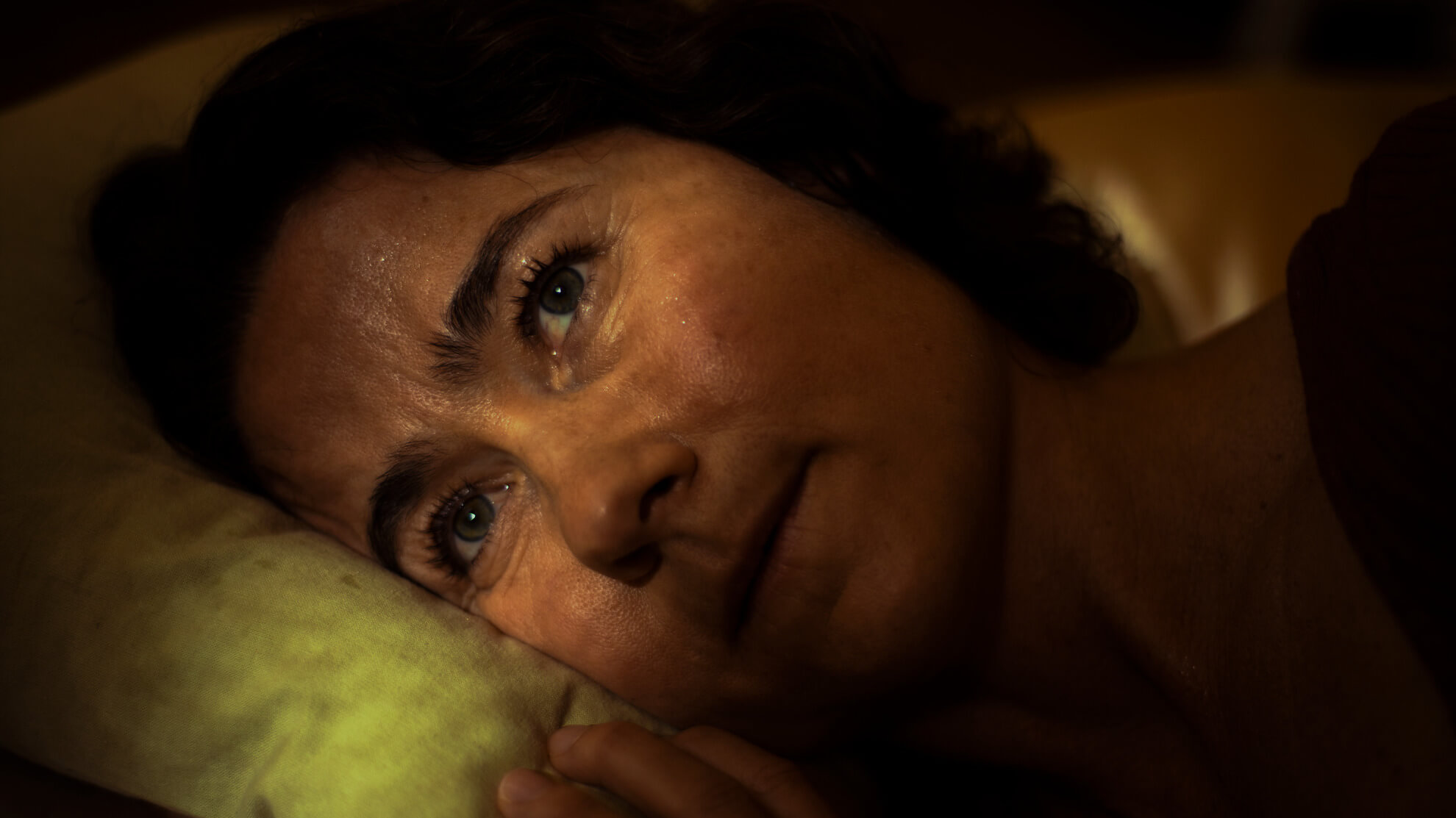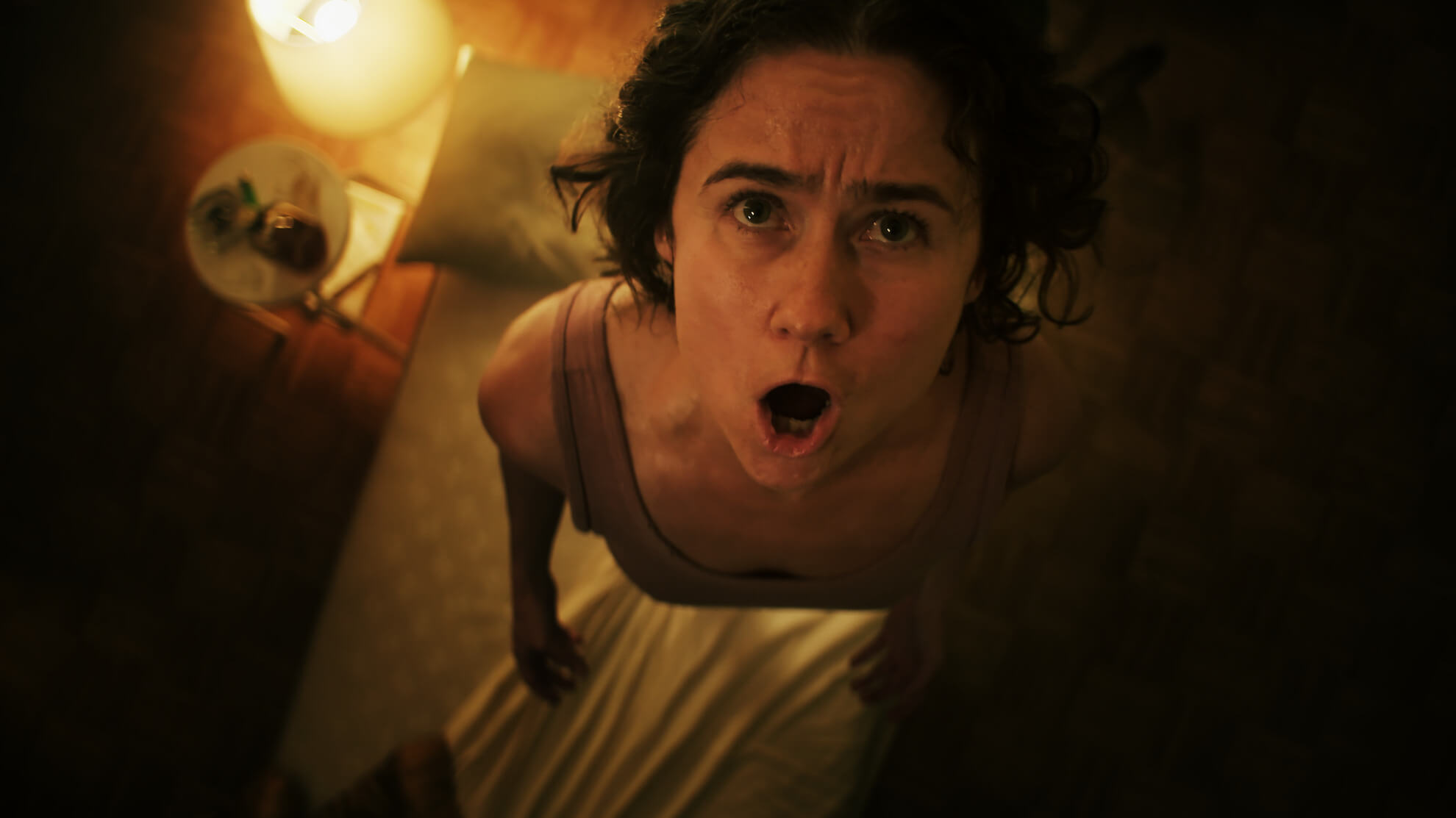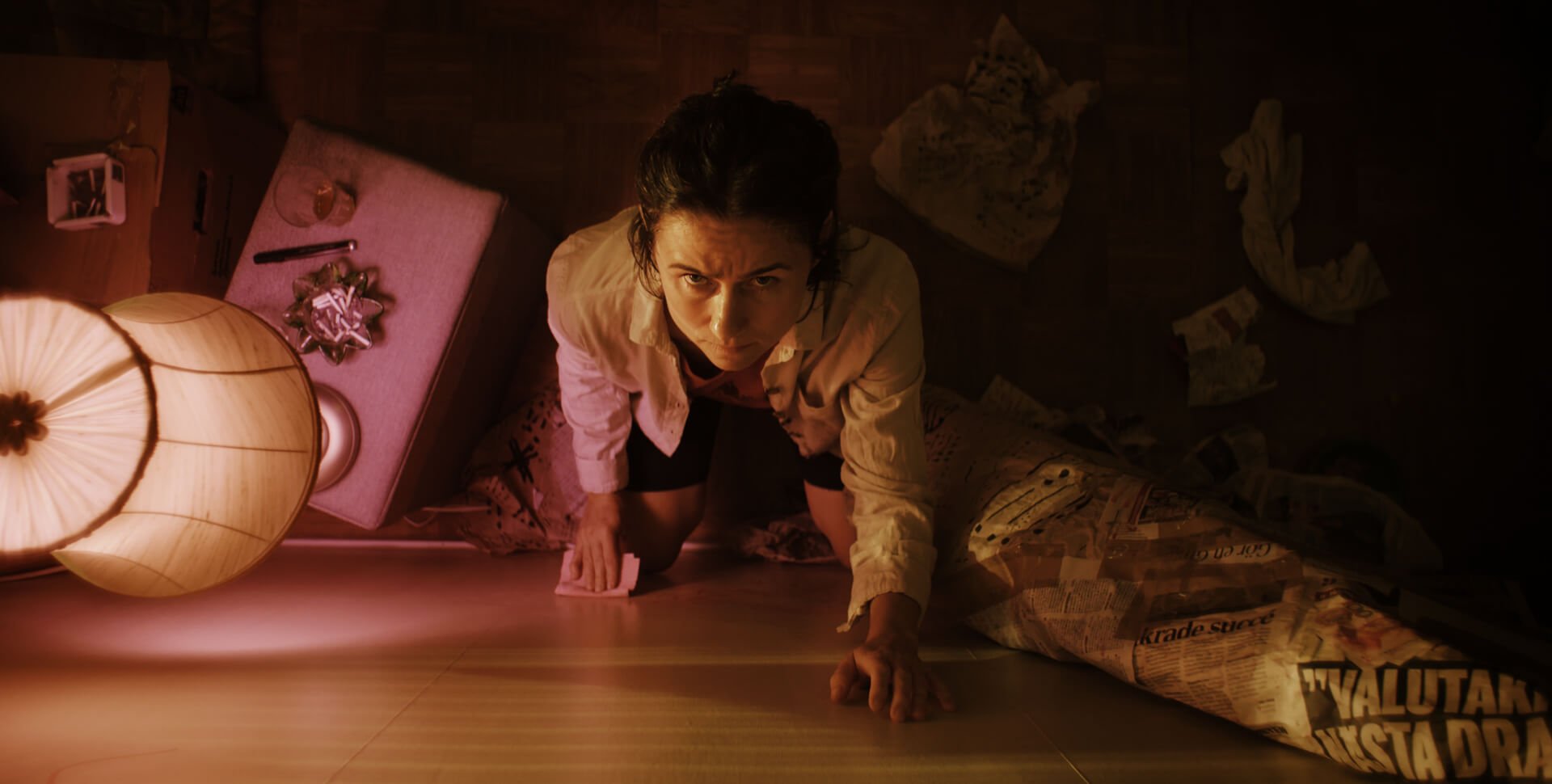Knocking is the 2021 Swedish horror-thriller film directed by Frida Kempfft and written by Emma Broström. A woman named Molly leaves the psychiatric ward after a nervous breakdown, only to start hearing mysterious knocking sounds in her apartment.
Light on everything: Showing promise, Knocking struggles to develop and manipulate its main character's psychological state in any way that benefits the film's conflict. Its viewpoint chokes, and that limits the ways the audience can interpret its events. This very slim feature, opting to go straight for its central mystery — the problem is that in 70-odd minutes, it only barely gets there. It trades a lengthy runtime for strained storytelling. It's going for the slow burn, this gradual acceleration into hysteria, but by the time our main character Molly decides to take meaningful action, the film's halfway over. It's frustrating to watch it stop and start when it's so close to its main character that it becomes suffocating. The film is obsessed with its main character to the point where characterizing her on the edge of reality comes at the expense of building a satisfying solution for its big question. No games get played with the audience, no exploration of alternate viewpoints. Its idea of conflict is to throw the distraught Molly at one of her neighbors, and none of these interactions take the story a step forward. It's as if it's going for tension through repetition — it wants to keep you guessing, but this repetition quickly becomes one-note. When it lumbers into its climactic moments, it doesn't land. There are subtleties to Molly's character which are dwarfed by the film's inability to deepen its characters or setting. When we hit the climax, it's almost indistinguishable at first from any of the film's other attempts at suspense. Simply put, there are not enough reasons to care about what Molly thinks she hears because we don't find out what's real and what's not up until the very end. It could have ended with the opposite outcome, and it wouldn't change the preceding events at all.

Suitably dark: Knocking is good at creating its own visual language — frequently framing Molly on the edge of the frame, perhaps insisting that through her solitary struggles, she isn't entirely alone. Where the writing may fail to endear you to Molly's plight, the camerawork picks up the slack — placing the audience in a deep palette of dark, earthy colors. A visually pleasing aesthetic choice — the high contrast suits Knocking's thrilling and psychological elements. Though it's not without fault — the film places you at the forefront of Molly's desperation, reflected through a reverse-POV shot that stays static on Molly's face as she's running around. It's a thoughtful decision, but the combination of the underdevelopment of the film's conflict and an insistence to linger on the reverse-POV utterly robs the viewer of any sense of setting or atmosphere. These choices are obnoxious and of lower quality than the measured, stable camerawork which came before.

Knocking is one of those indie thrillers that think suspense comes through silence, but it's quiet because it doesn't have that much to say — weird from a film that spends all of its time centered on the inner feelings of one person. It's strange to spend this much time with someone and still feel like you haven't learned anything of consequence. Knocking has a script so light, I wouldn't hear it if it were moaning through the vents.

